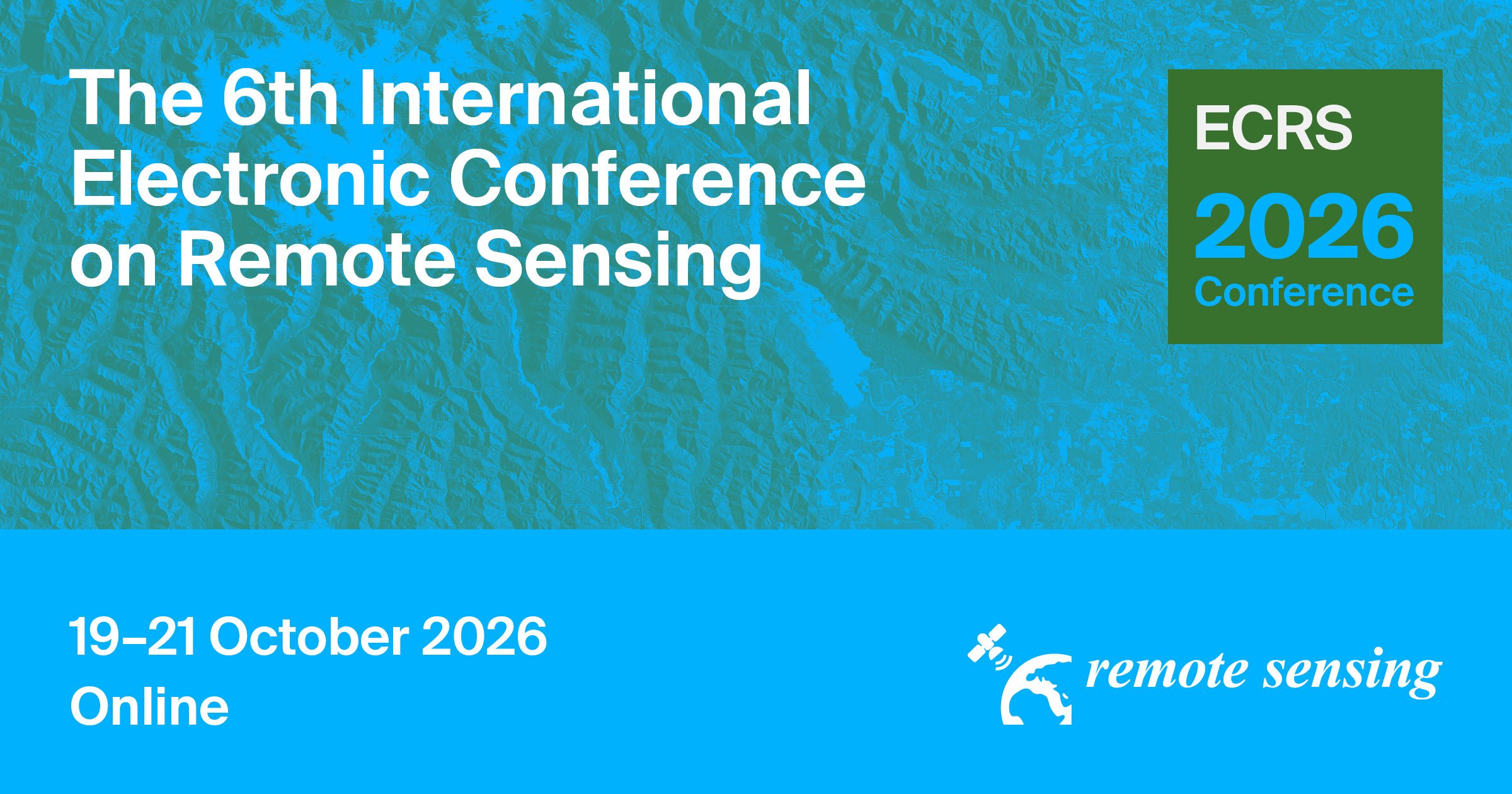
Meet Us Virtually at the 6th International Electronic Conference on Remote Sensing—Global Perspectives for the Next Generation in Earth Observation, 19–21 October 2026
The conference is organized by the MDPI open access journal Remote Sensing (ISSN: 2072-4292; Impact Factor: 4.1) and will be held online from 19 to 21 October 2026. We extend a warm invitation to all researchers and practitioners in the field to join this exciting event.
Conference Chair:
- Prof. Dr. Timo Balz, the State Key Laboratory of Information Engineering in Surveying, Mapping and Remote Sensing (LIESMARS), Wuhan University, China.
Topics of interest:
S1. AI in Remote Sensing;
S2. SAR Remote Sensing;
S3. Remote Sensing in Semi-Arid and Arid Areas;
S4. Remote Sensing in Tropical Areas;
S5. Remote Sensing in Urban Areas;
S6. Remote Sensing of the Environment;
S7. Remote Sensing for Cultural Heritage Protection;
S8. RSVQA—Remote Sensing Visual Question Answering.
Important dates:
Abstract Submission Deadline: 18 June 2026;
Abstract Acceptance Notification: 17 July 2026;
Free Registration Deadline: 13 October 2026.
Guide for authors:
To submit your abstract, please click on the following link: https://sciforum.net/user/submission/create/1492.
To register for the event, please click on the following link: https://sciforum.net/event/ECRS2026?section=#registration.
For details regarding Abstract Submission, Poster and Slide Submission, and Publication Opportunities, you may refer to the “Instructions for Authors” section: https://sciforum.net/event/ECRS2026?section=#instructions.
For any enquiries regarding the event, please contact ecrs2026@mdpi.com.
We look forward to seeing you at the 6th International Electronic Conference on Remote Sensing—Global Perspectives for the Next Generation in Earth Observation.